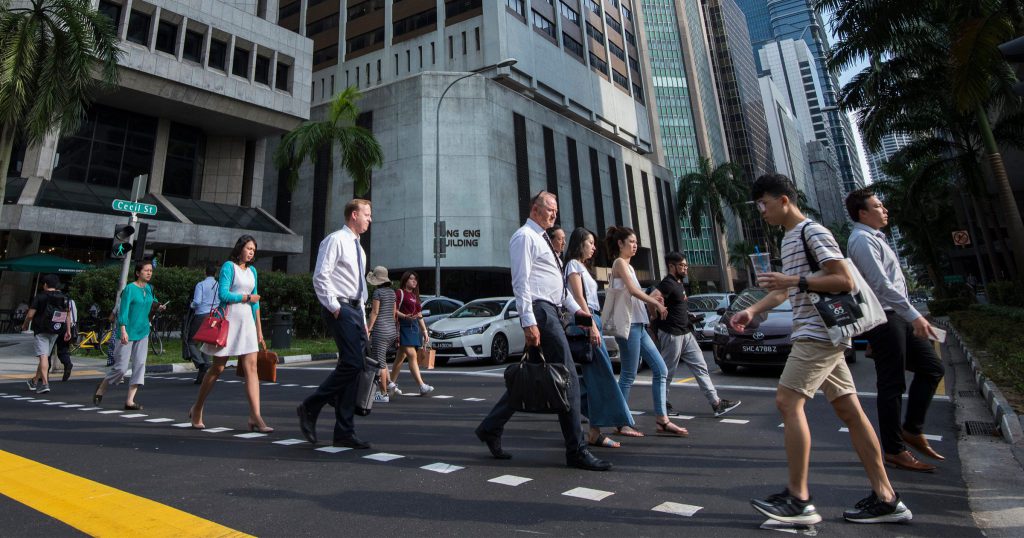While the recession and pandemic have wrecked havoc on many industries, forcing them to cut back on hiring, others have seen reverse effects and are expanding robustly.
For years, companies have been attempting to digitalise the hiring process. However, the onset of the Covid-19 pandemic, lockdowns and social distancing rules have hastened the shift to digital hiring.
Here are some hiring tools and techniques recruiters use that jobseekers should look out for:
1. Speed Hiring
Move over speed dating, speed hiring is here.
Speed hiring or speed interviews allow recruiters to meet many different candidates in a short period of time, typically during virtual career fairs.

Local startup Hireplace runs virtual hiring events for students and jobseekers to find full time roles through speed interviews online.
Some of the companies who have signed up for these speed hiring events include JTC Corporation, Enterprise Singapore and Wantedly.
“For companies that are still hiring, the number of applications has skyrocketed and HR might find it hard to cope with the sheer number of shortlisted candidates,” said Hireplace co-founder Stewart Chan.
Speed interviews are a good opportunity to wow prospective employers in just five minutes and as Stewart puts it, “everybody gets a slice of 1-on-1 face time with the HR or hiring managers.”
2. Résumé Screening Using Artificial Intelligence

From advertising and attracting potential applicants to predicting candidates’ job performance, recruiters can make use of artificial intelligence (AI) throughout the hiring process.
A popular use of AI is in screening through application materials such as resumes, in order for recruiters to decide who to contact first. This is also better known as the Applicant Tracking System (ATS).
Résumé screening softwares usually extract details from résumés by identifying keywords related to the skillsets or past experiences of jobseekers.
A score is then assigned to every jobseeker and the candidates are ranked and sorted.
The MyCareersFuture.sg portal has a similar preview feature, which allows hiring managers to glance through the key skills and work experience of applicants before deciding which resumes to download.
This is undoubtedly a useful tool for recruiters who have to go through up to a thousand job applicants.
On the other hand, jobseekers have to be mindful about the use of such technologies and tailor their resumes to ensure that the AI is able to accurately detect their skills.
3. Online Video Interviews

With the social distancing rules and work-from-home measures in place, companies are increasingly using video-conferencing tools like Zoom to hold interviews.
Though face-to-face interviews are tough to hold during this time, virtual interviews offer a similar experience. They are highly interactive, and employers can still access expressions and body language effectively.
One-Way Pre-Recorded Video Interviews
Pre-recorded job interviews are increasingly being used as a tool in the recruitment industry to select candidates for the next stage: the face-to face interview.
A pre-recorded interview is one that is filmed in advance, and then watched by the recruiter afterwards. Candidates are asked to connect to a platform and record themselves answering a series of pre-recorded questions.
Most of the time, these interviews are geared towards finding out more about candidates before meeting them, and is an alternative to a pre-selection phone call.
Digital Hiring Processes Likely To Stay Past Covid-19
Though the emergence of Covid-19 might have pushed more employers to adopt these tools, they have already been gaining popularity pre-pandemic.
“In this digital age where new technology and emerging skills are changing the hiring landscape, it is critical for us to keep pace with the changes to better match job seekers to employers.” said Workforce Singapore chief executive Tan Choon Shian.
The large pools of applicants are likely to stay even after Covid-19, and these tools make it easier and cheaper for HR departments to hire.
Featured Image Credit: MIPS











